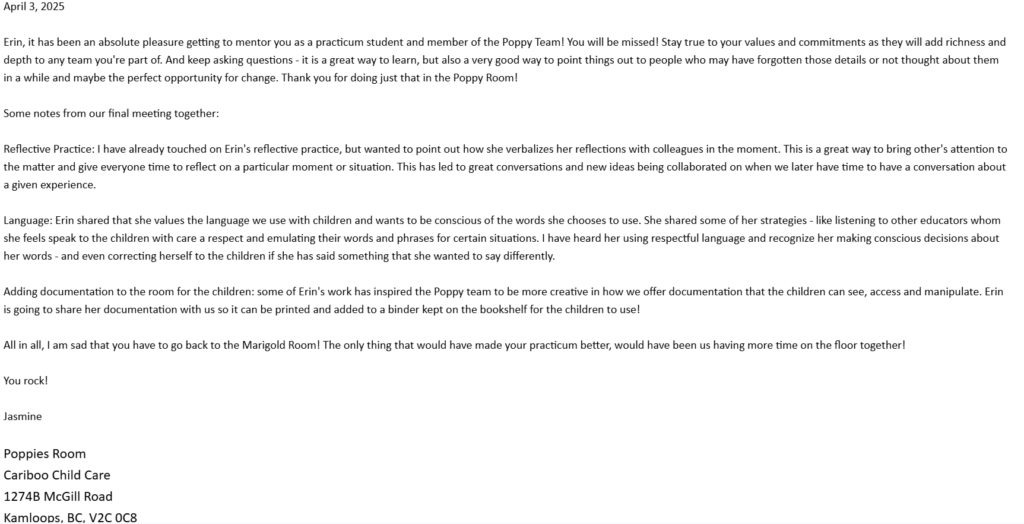This section is where students demonstrate their acquired and growing skills, their ability to put theoretical/in class learning and discussion into practice and where they will demonstrate their professional skills as early childhood educators, colleagues, and contributing members of effective early years teams.
Headings Students will use the following headings to reflect and organize the learning they are demonstrating.
- Professional skills: Reliability, punctuality, communication skills, problem solving, contributions to team, initiative, reflective practice and ability to listen to and adapt practice based on constructive feedback, etc.
- Practical Skills: Responsive/Relational Care of young children, roles, duties, tasks etc.
Resources
To better understand and plan for building evidence in this section please refer to:
- BC Child Care Sector Competencies
- ECED 1200 Moodle Section: Professional Foundations
- ECED 1350 Moodle Section: Observation
- ECED 1330 Child Guidance
- CYCA 2500 Human Development Birth to Age 8
- ECED 1340 Interpersonal Communication
_____________________________________________________________________________________________________________________________________________________________________________________________
Infant and Toddler Practicum
3 Goals for Practicum
- Family relationships that involve cultural awareness-
In the Poppies room, there are a variety of cultures. I am familiar with multi-cultural rooms thanks to my time in the Marigolds. I am very familiar with those families, since I have been working there for over a year with many of them. However, I have not met many of the Poppies families, aside from a greeting at pickup from our shared yard. I am looking forward to creating those connections and learning more about each child and their families.
2. Relationship with educators in new room-
I am very excited to get to know the educators in the Poppy room. I have spent plenty of time in the yard and sharing spaces with them, but I have not spent time in their room. Each educator brings different talents into the space, and I am pleased to get to challenge myself with a new space for my practicum.
3. Listen and discover the children’s interests-
Because I have been working in the Marigolds room for so long, I know exactly what my children are interested in and I am able to further their interests with stories, and materials. However, in the poppies room, I am less familiar with the children, so I am excited to learn what they’re interested in and find ways to further their inquiries!
My Pedagogical Commitment to Infants and Toddlers
A very important topic to me is creating bodily autonomy for children of all ages. If we use the right language and allow children to have choice over their body, they will grow up with a sense of control over their own body. This goes together with the 10 principles of respect: principle number 1. With language, we can “involve infants and toddlers in things that concern them.”
Because my goal for my ECE practicum was focused on language, I would like to continue this thought. However, I’d like to be more specific for this practicum. I would like to be conscious of my language around the caregiving tasks that simply must be done. But I want to be more aware of the child’s permission and their willingness to complete tasks. I will make myself more aware of the language I use with children to promote bodily autonomy and encourage choices.
In the name of a democratic program, where children have autonomy over their bodies, I commit to creating a space of love and equality between educator and child. In a recent blog post from February 13, 2025, Teacher Tom states, “What I’ve come to reject are approaches that place adult power over children at the center instead of love for them.”
Autonomy with Books
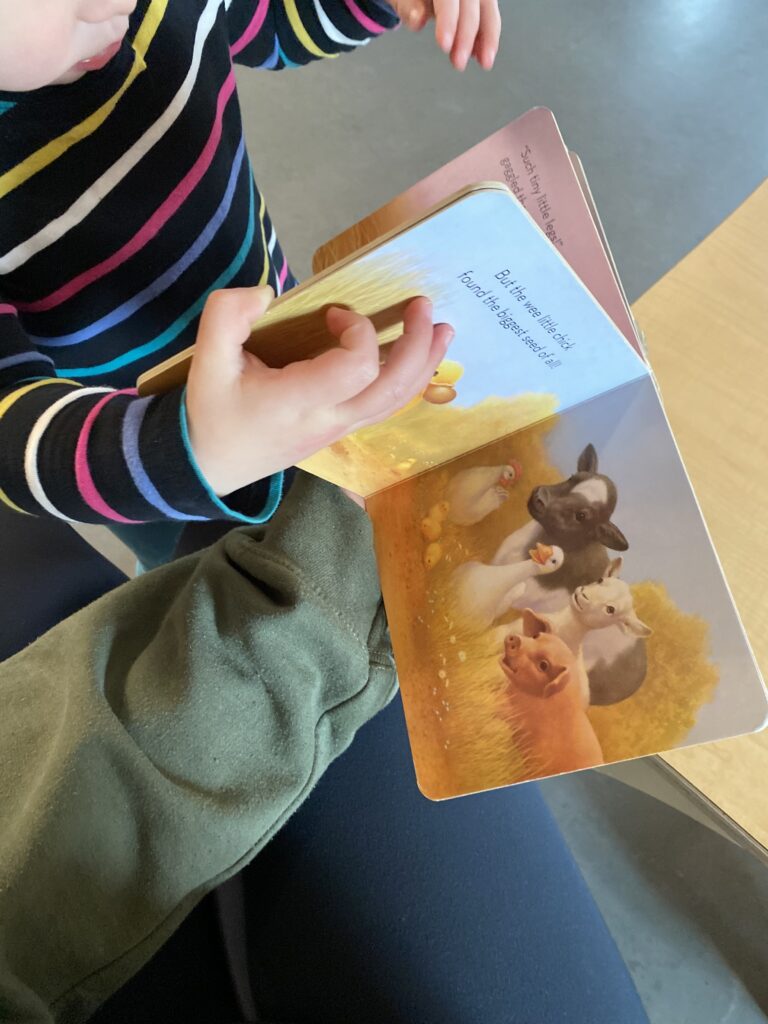
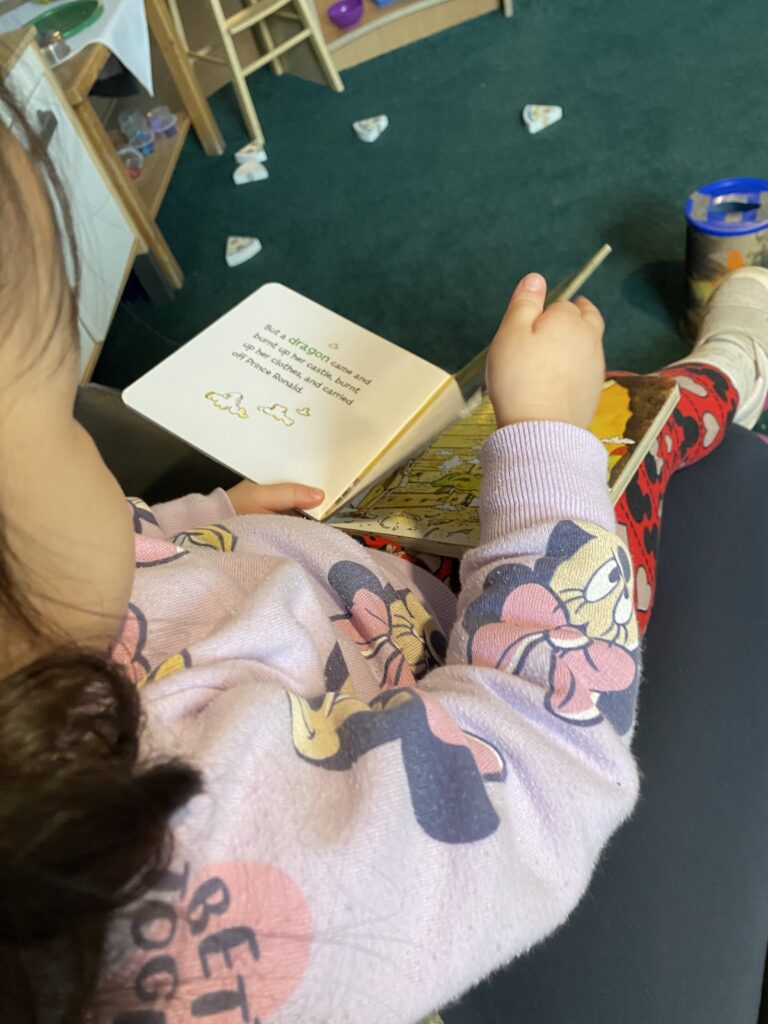
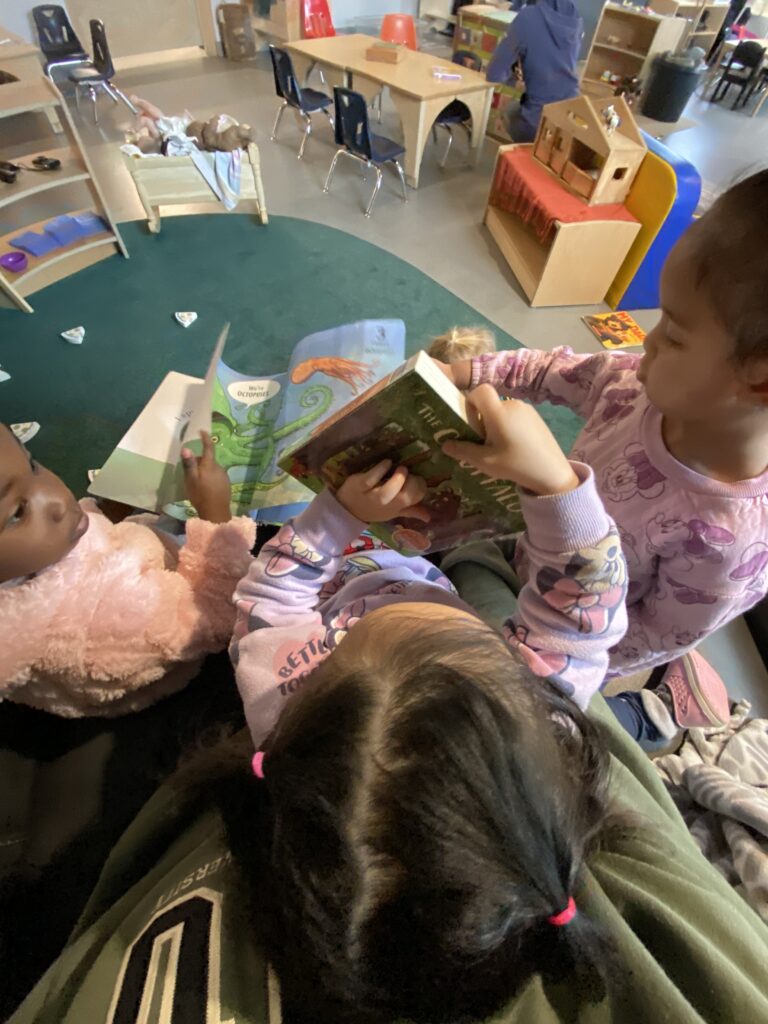
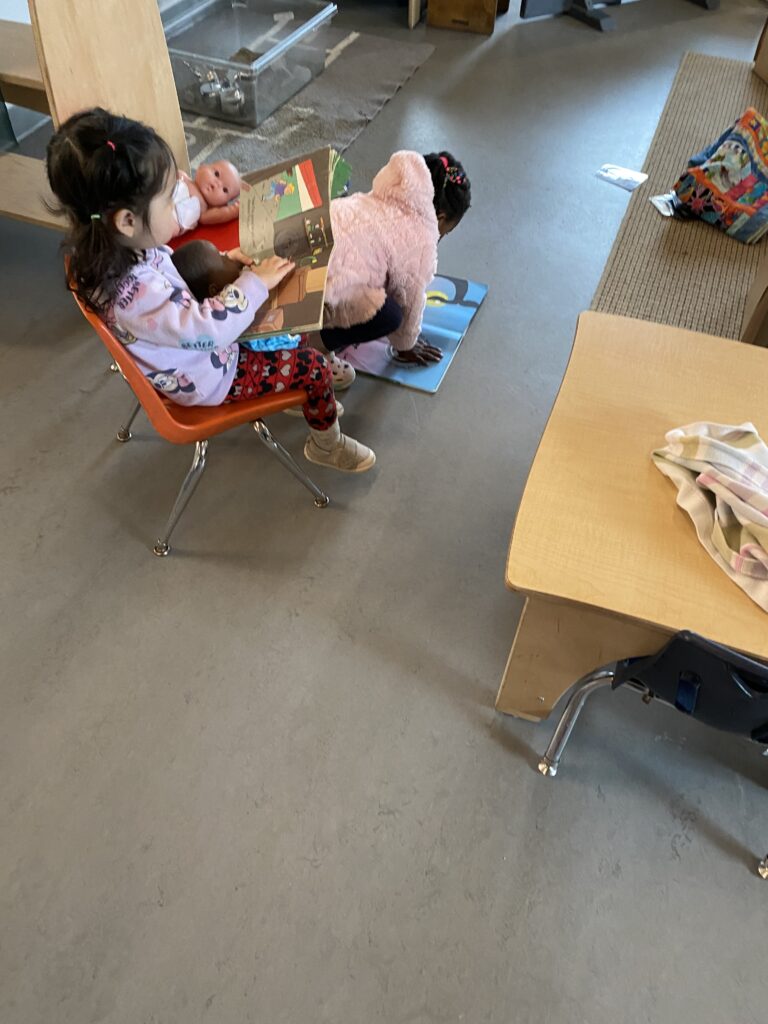
In terms of agency and bodily autonomy, it didn’t occur to me that there are so many ways a child can experience the art of stories. While reading a book, children may freely choose :
- Where in the room they want to read
- Who they want to read it with
- If they will be the one to hold the book
- If they want to turn the pages, or what direction to turn the pages
- How they want to sit or stand and position their bodies with the book
- When they are finished with the book (whether it’s the end or not)
Week one – Field Notes
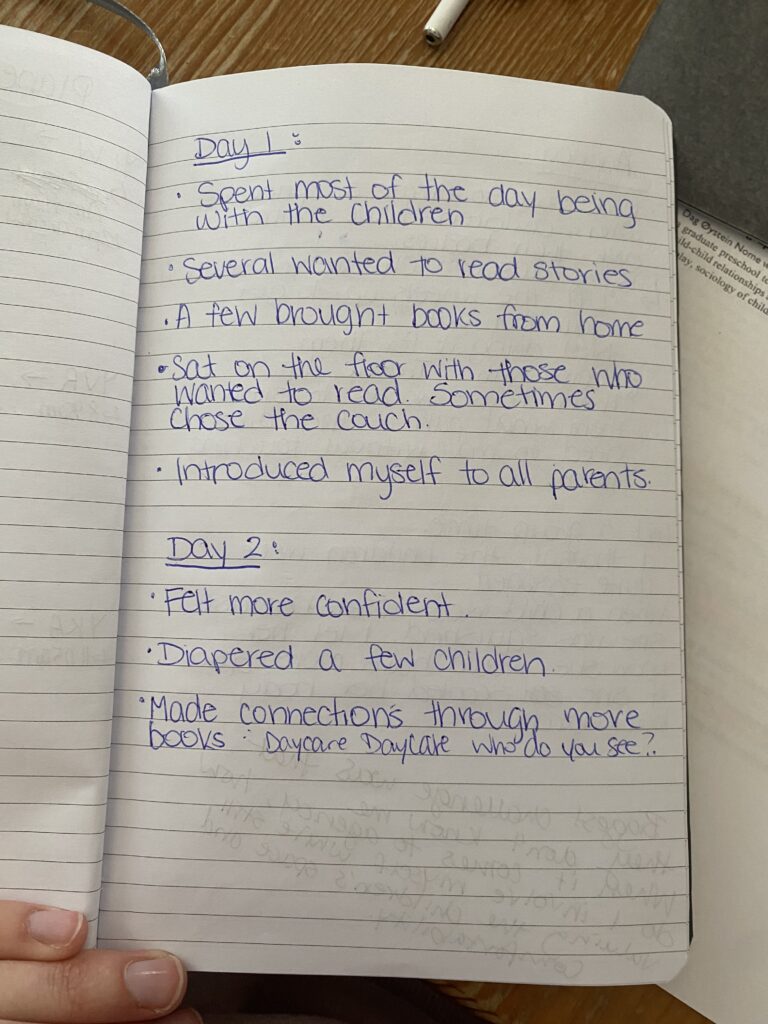
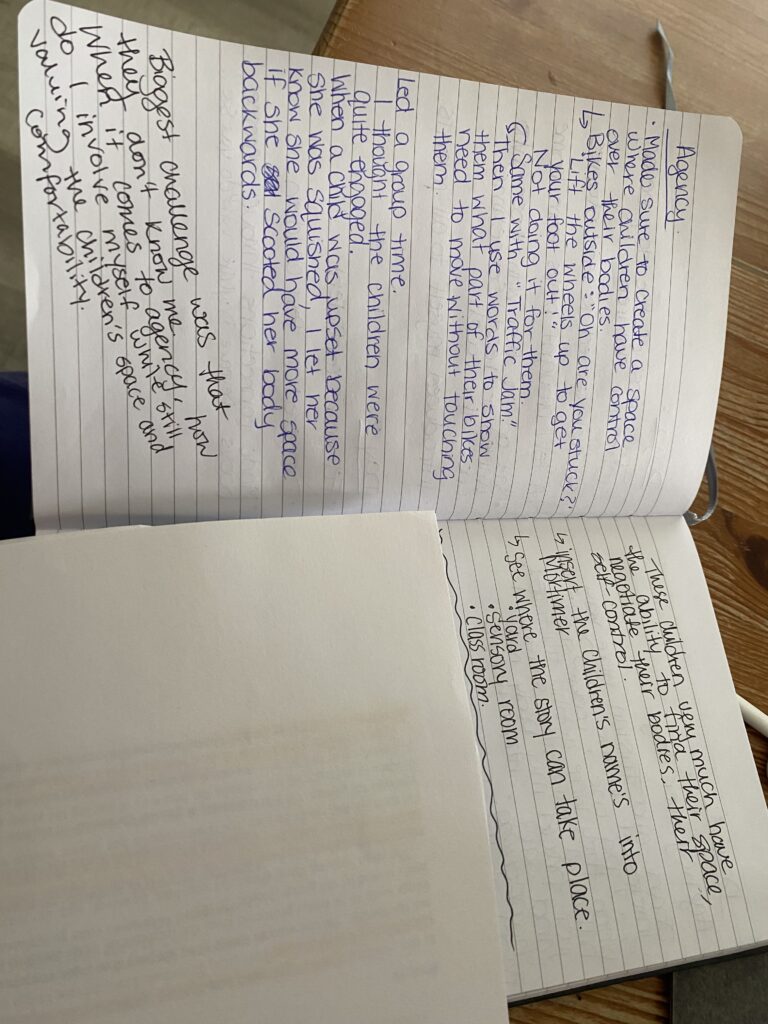
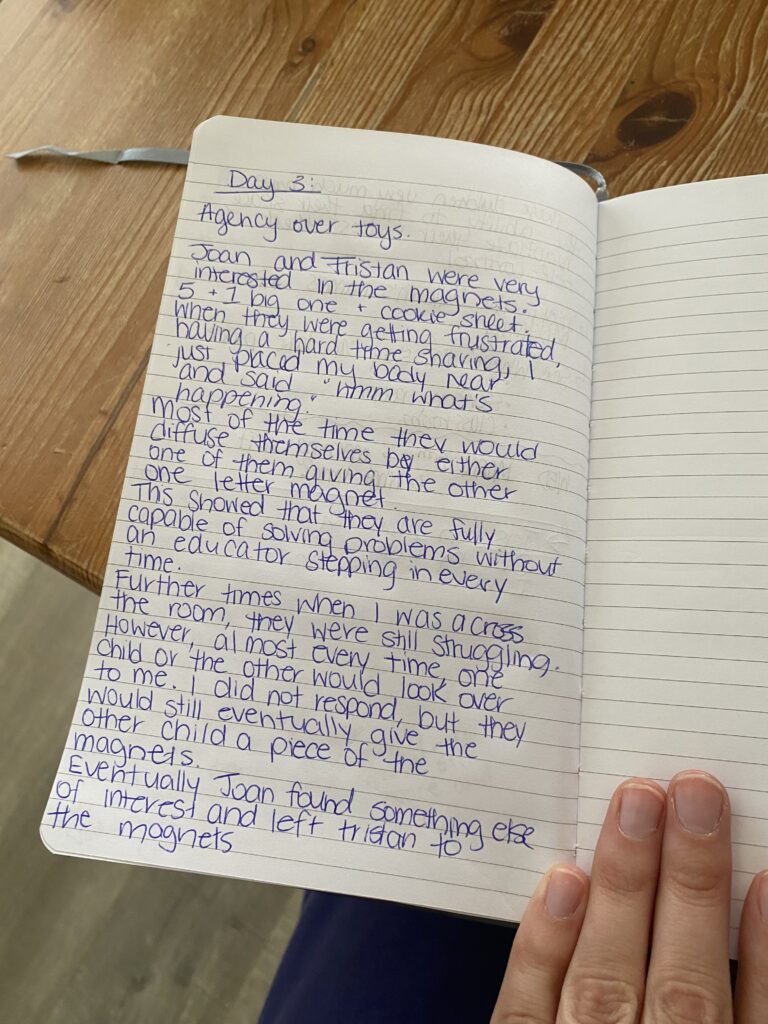
Week One – Mentor Educator Feedback
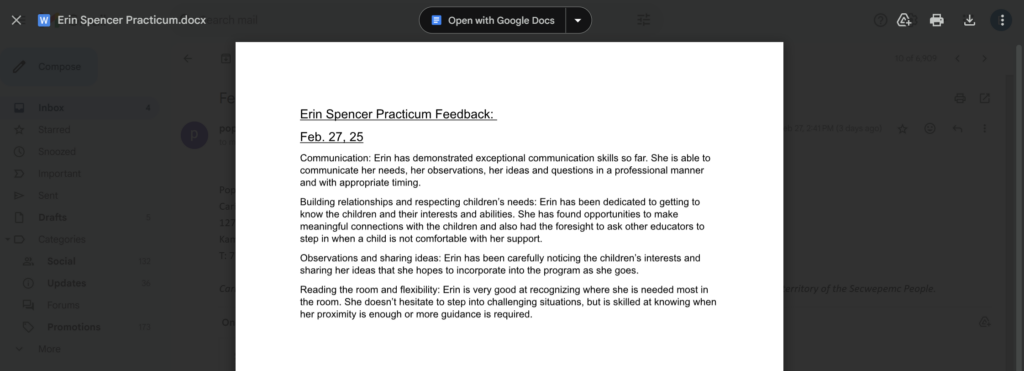
Week 2 Field notes
Preparing for my HAPPENINGS:
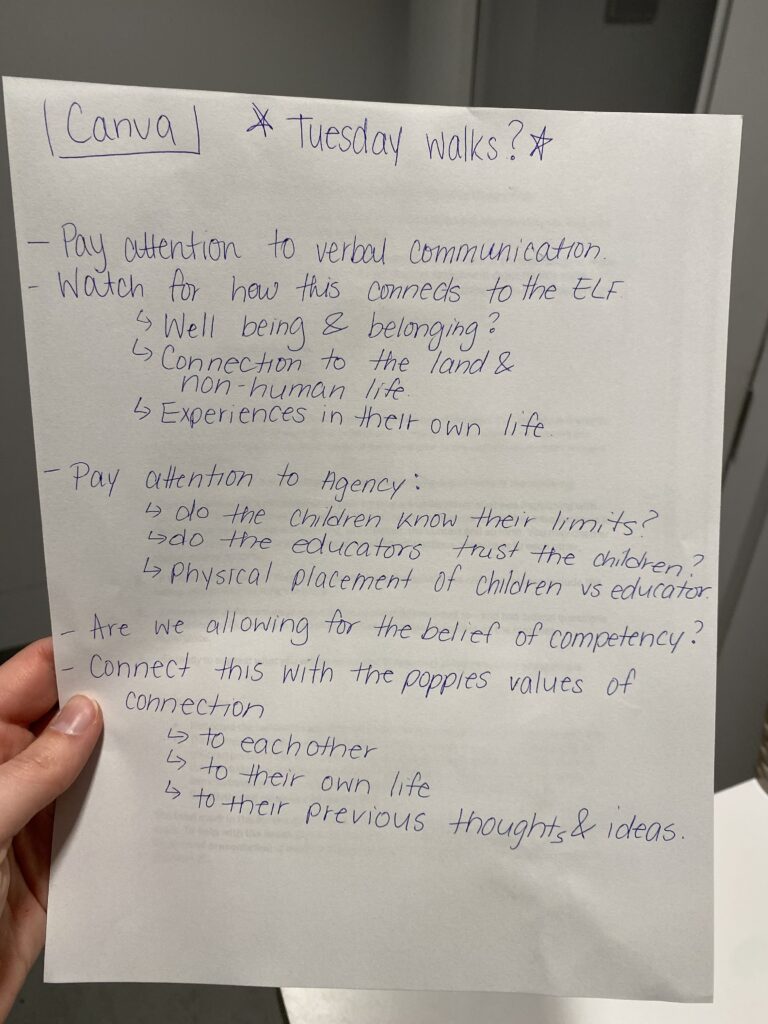
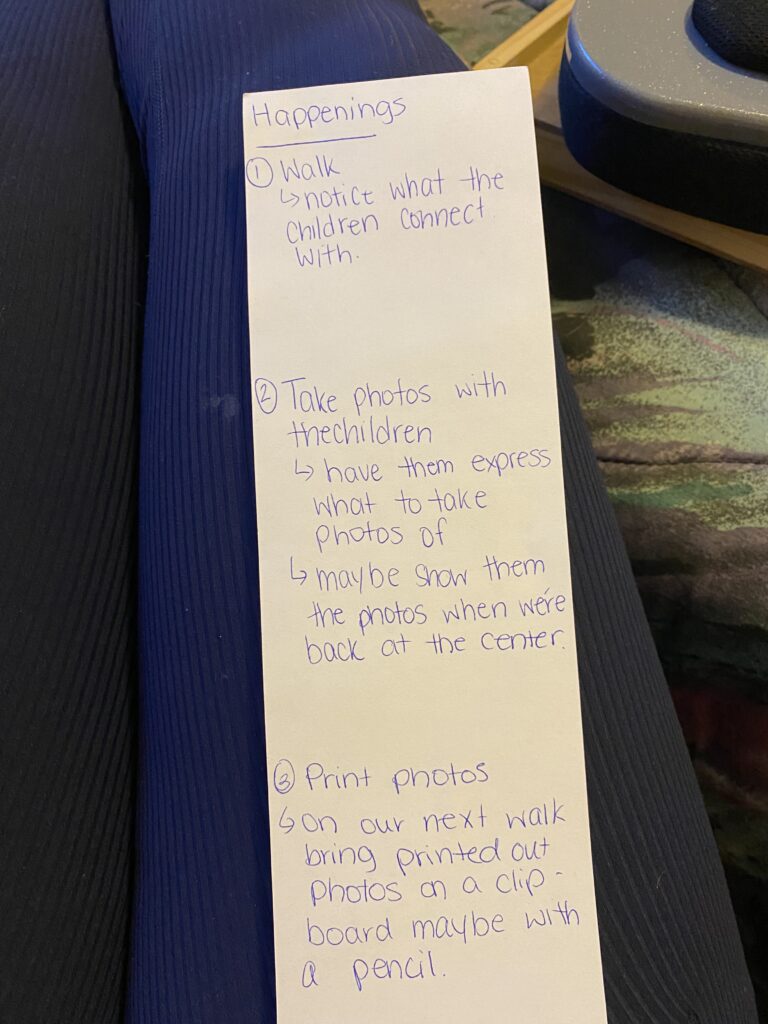
Mentor Educator Feedback

Happening # 1


Happening # 2





Mentor Educator Feedback

Happening #3





Autonomy with Paint
As the children wake up from nap, we try to have a calm invitation available. Lately, the children have been spending a lot of time painting at the art table. A few times, I have put out colored water and a big piece of paper. Jason specifically was asking multiple times per day if we could do more painting. Pictured below are Mack and Emily exploring water color pucks and revisiting the art we hung on the wall. This is important to me because it highlights another way to value children’s autonomy. In the first picture, Mack is noticing the (very faint) happy face from a previous day of painting. In the second picture he has realized he has two paintbrushes and I could watch him as he carefully decided which to dip in the red paint. Next, he had freedom to press his brush down on the paper and drag his brush, almost making a hole in the wet paper. The final picture is Emily making a puddle on the paper while she said “muddy puddle home too!” recognizing the connection to her previous experiences.
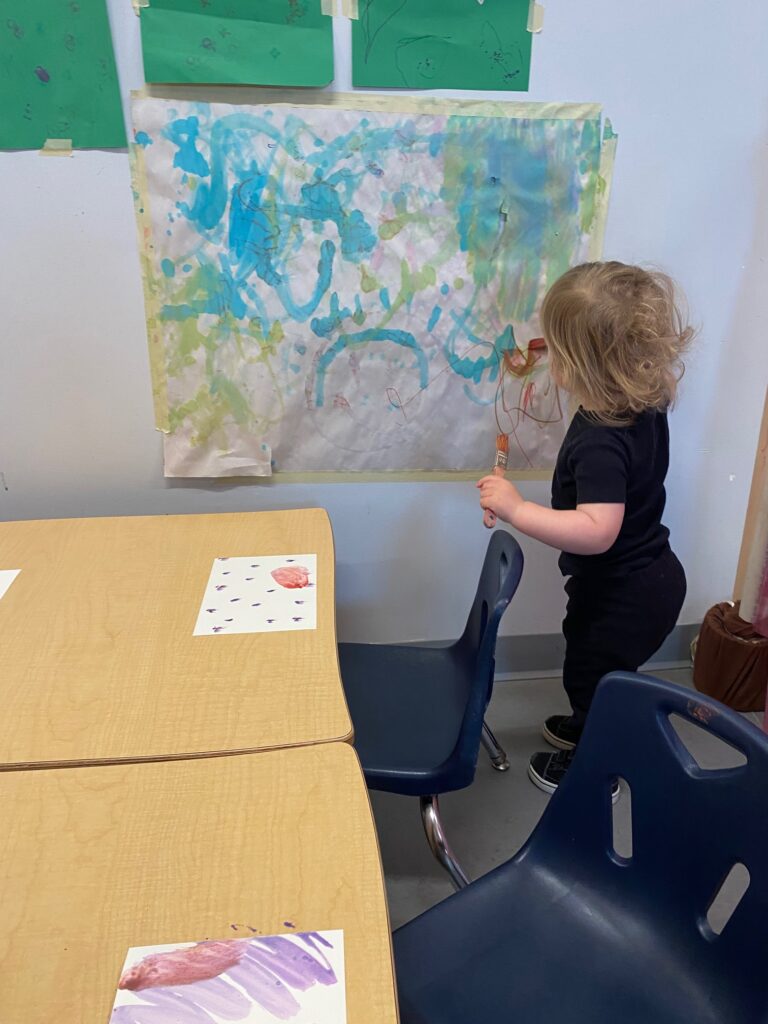
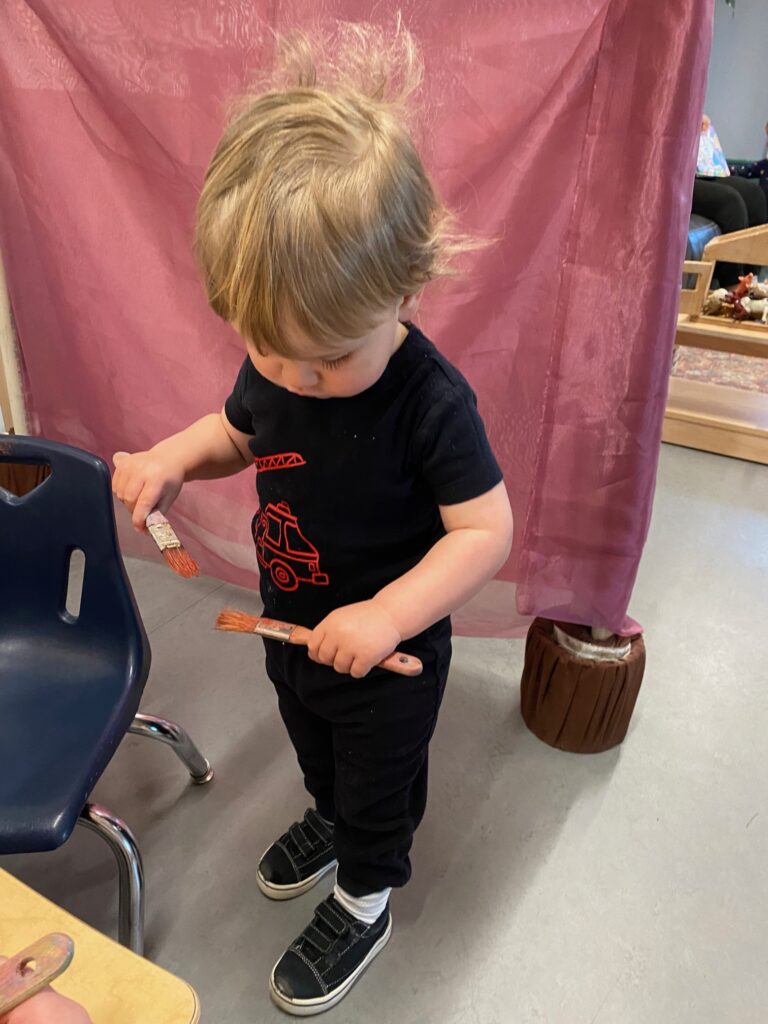
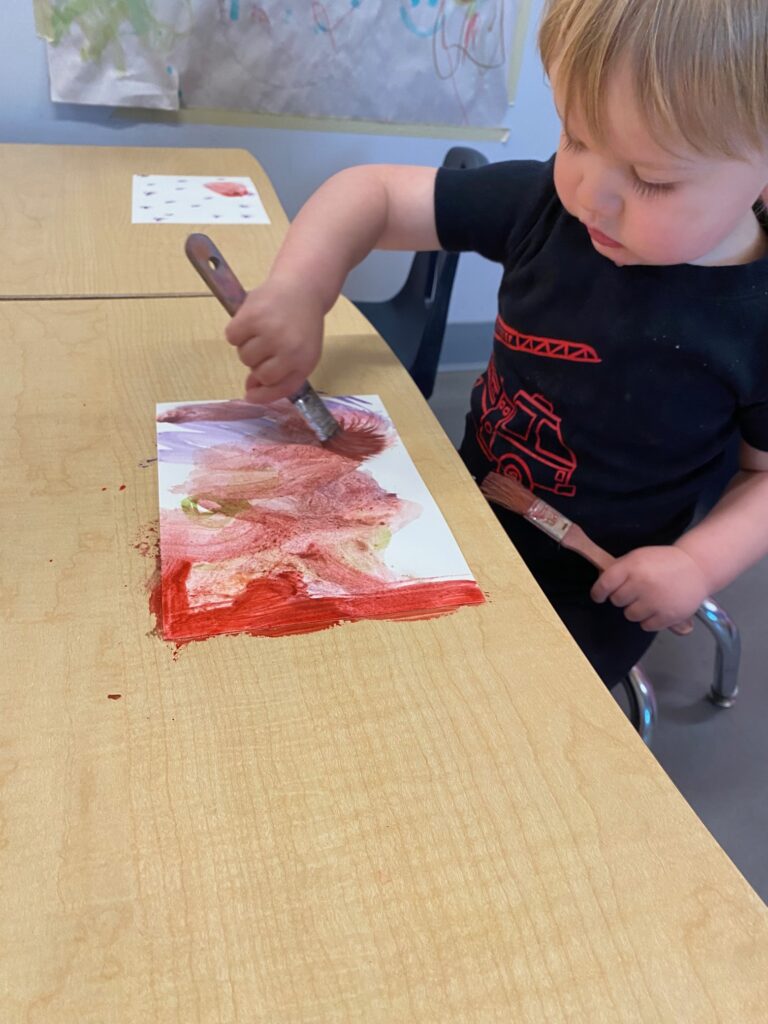
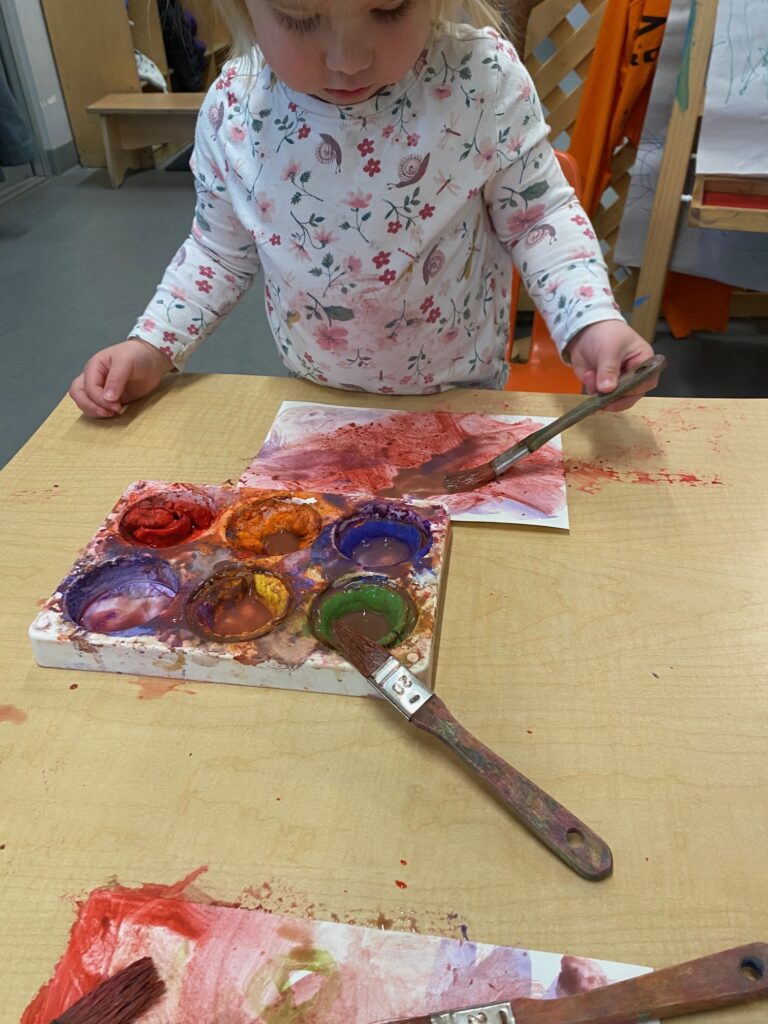
Final mentor Educator Feedback
